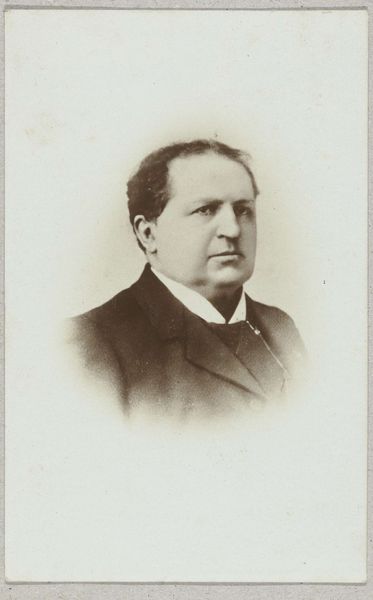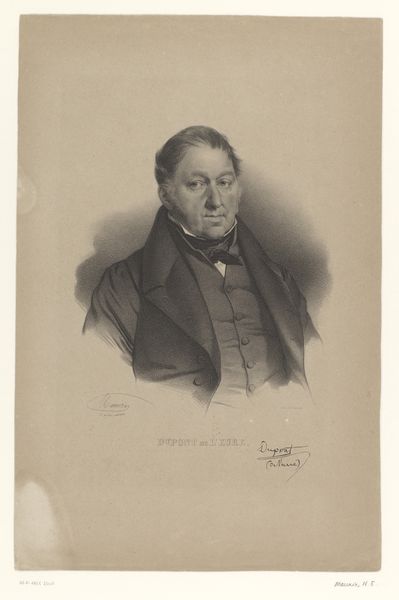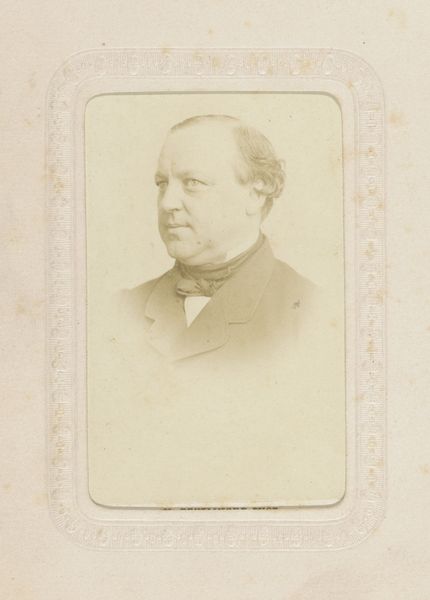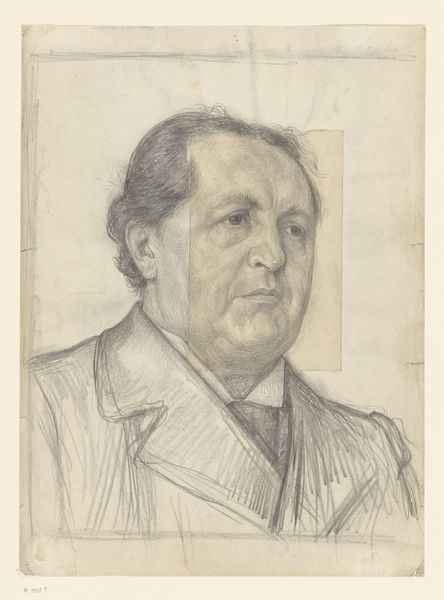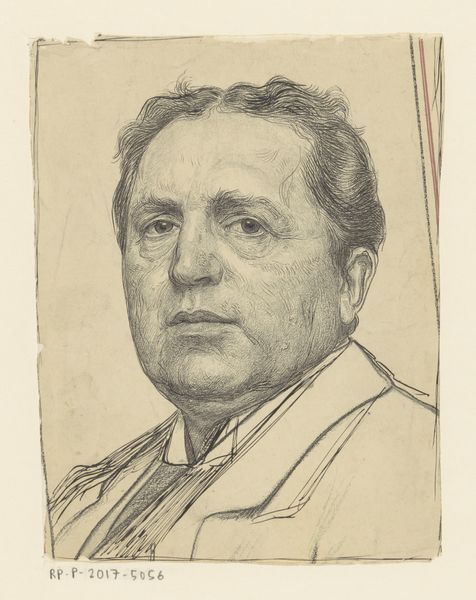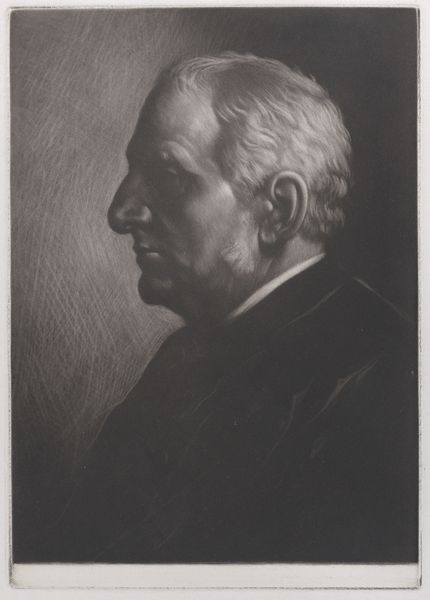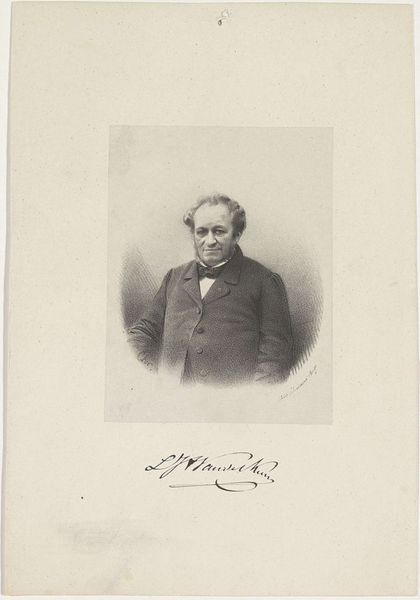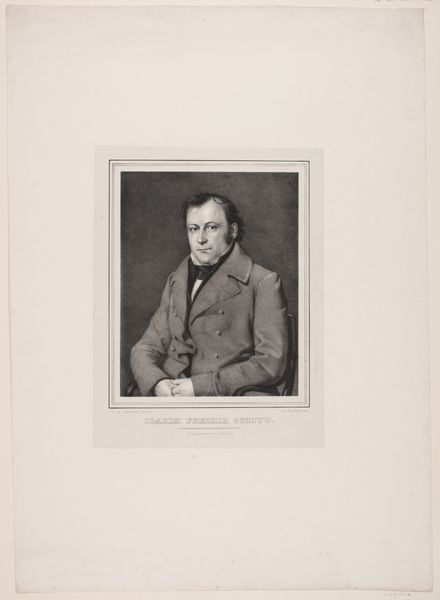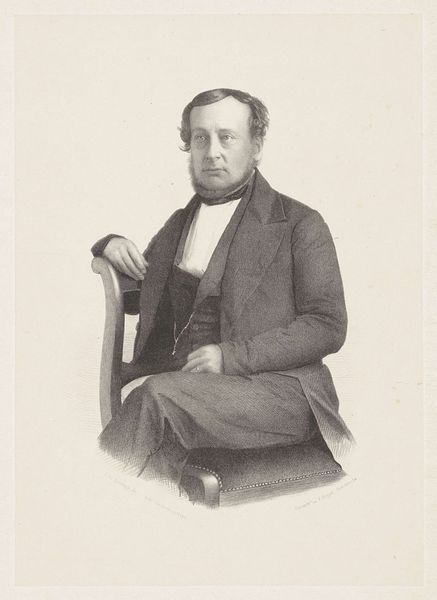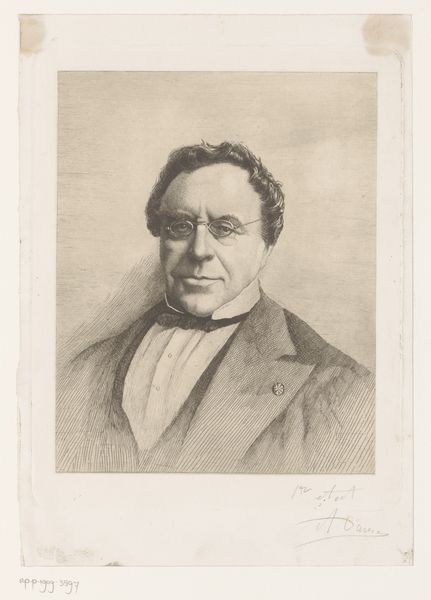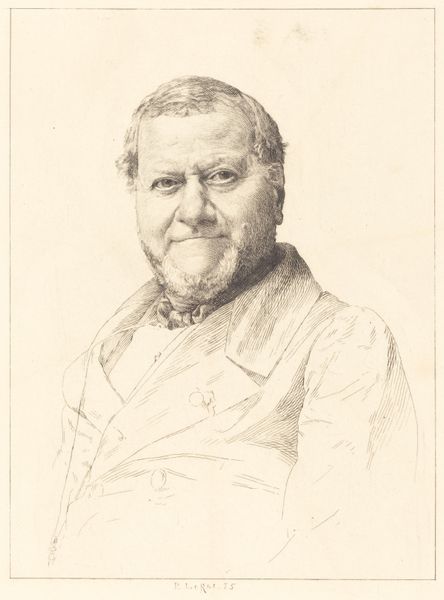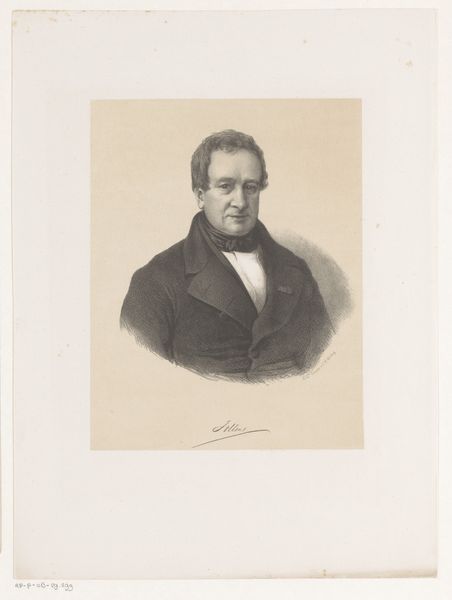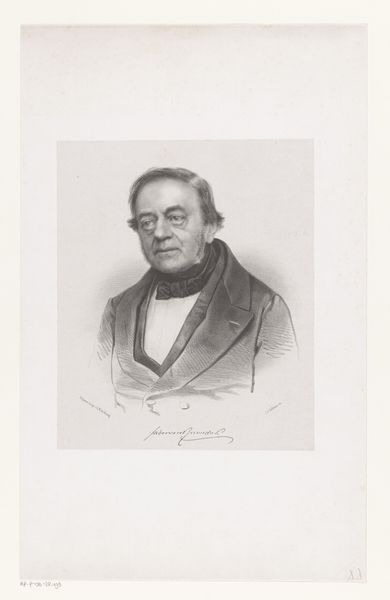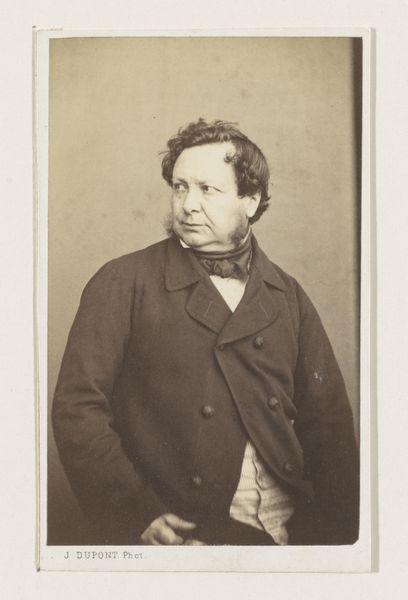
#
picture layout
#
wedding photograph
#
yellowing background
#
photo restoration
#
film poster
#
historical photography
#
portrait reference
#
old-timey
#
yellow element
#
photo layout
Dimensions: height 315 mm, width 375 mm
Copyright: Rijks Museum: Open Domain
Editor: This is Jan Veth’s "Portret van Abraham Kuyper," created in 1900. The texture is captivating – almost like a photograph, yet you can see the artist's hand in it. The man portrayed seems to be in a position of authority, though the old-fashioned style softens the impact. What's your take? Curator: Well, this portrait reflects a pivotal moment in Dutch history, a time when figures like Kuyper were shaping the nation's political and religious landscapes. Veth captures Kuyper not merely as an individual, but as a symbol of the burgeoning neo-Calvinist movement. Notice the sober palette, and formal composition: these weren’t accidental choices. Veth, consciously or unconsciously, participates in the construction of Kuyper’s image as a man of gravitas, of seriousness. What kind of reception might this image have generated at the time? Editor: It makes me wonder how this image was originally displayed and perceived. Was it meant for public consumption, reinforcing his image? Curator: Exactly! Images like these were vital in solidifying political figures' influence. They circulated in newspapers, pamphlets, and even hung in public spaces, subtly shaping public perception. The Rijksmuseum, where it is now, alters its significance too – what was once a propaganda tool, so to speak, has become an object of art. The setting undeniably gives the image a sense of validation and reverence it might not have possessed initially. Does that impact your perception of it at all? Editor: Definitely! I see now how museums themselves can affect how we understand art and history. Learning about the socio-political use of such portrait is fascinating. Thank you! Curator: My pleasure. Hopefully you gained some perspective on how art acts as a lens through which to understand history, its construction, and continuous reinterpretation.
Comments
No comments
Be the first to comment and join the conversation on the ultimate creative platform.
